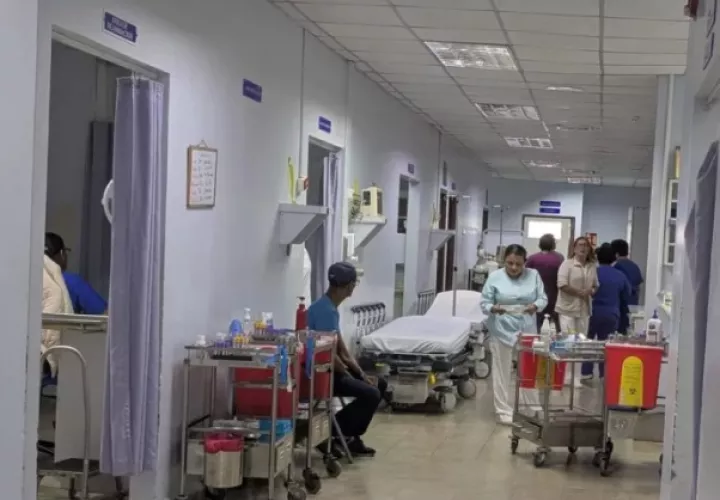HEALTH WATCH: Diesel emissions harming kidneys

THE DISAPPEARANCE of Panama’s Diablos rojos has helped reduce some of the visual pollution in the city, But with some 4000 new vehicles on the road each month and vehicles idling away in traffic jams, air pollution is an ongoing problem.
Dr Cory Couillard writes:

Among the most pressing of today's environmental issues is the pollution of the air we breathe. People generally understand that air pollution can damage the lungs, but new research has found that pollution can affect the heart, circulatory system and kidneys as well.
The study published in the Journal of Epidemiology and Community Health found living close to a busy road could increase the development of kidney disease. An average person breathes 22,000 times a day and takes in 16 kg of air each day, which implies that individuals cannot live without clean, healthy air.
Diesel fuel has been discovered to contain tiny particles that can injure blood vessels and prevent them from contracting and relaxing properly. The blood flow disturbance increases the risk of blood clots in the heart and decreases the overall function of the kidneys.
Researchers at the Beth Israel Deaconess Medical Centre measured the kidney function of 1,100 patients using a test called glomerular filtration rate (GFR). GFR is the most accurate test to determine the functionality of the kidneys. A low GFR is representative of poor kidney function.
Half of the study participants lived within 1 km of a major road in a metropolitan area and the remainder lived no further than 10 kms away. They found that a patient’s GFR was directly related to the distance away from the road – shorter distance equalled lower GFR.
Eliminating other known risk factors such as age, race, sex, dehydration and underlying kidney problems confirmed the direct relationship. Shockingly, people living just 50 metres from a major road had a relative aging effect of four years.
"If causal, these results imply that exposures associated with living near a major roadway contribute to reduced renal (kidney) function, an important risk factor for cardiovascular events," according to the authors.
Heart disease and kidney disease are intimately connected as one affects the other. Most people with kidney disease develop high blood pressure and people with high blood pressure develop kidney disease.
"Since we know traffic pollution increases the risk of heart disease, the message of this study – that traffic pollution might damage the kidneys – is perhaps to be expected according to Dr Tim Chico, of the University of Sheffield.
"The responsibility to reduce traffic pollution falls on everyone, and this study is yet another reason – as if we needed one – to travel on foot or bike where possible."
The exact cause and effect of pollutants on health is often impossible to obtain. This is due to individual differences such as genetics, one’s overall health, history of exposure and a pollutants reaction time. Certain individuals are affected more than the rest of the population such as the elderly, children, pregnant women and the handicapped.
There are the many types of air pollution that contaminate the air and awareness is growing about the dangers they can pose to one’s health. Continued research and regulations need to be put in place to reduce the amount of pollution that we breathe every day. While there is much more to be done, knowledge of the problem is the foundation of change.
Dr Cory Couillard is an international healthcare speaker and columnist He works in collaboration with the World Health Organization's goals of disease prevention and global healthcare education. Views do not necessarily reflect endorsement.





